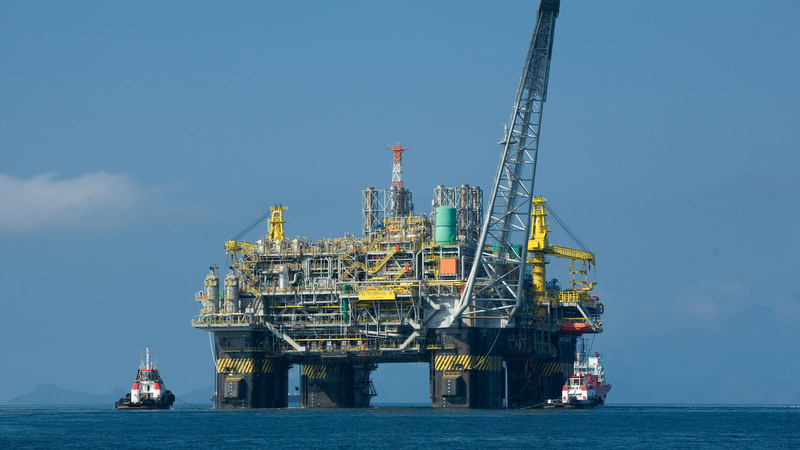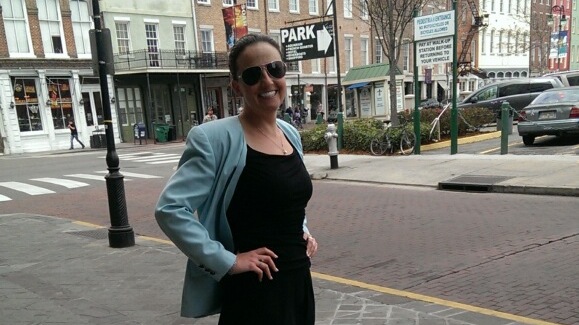 The Producer Diaries
Cheridan Sanders, a Producer at Salt and Light Television, reflects on her experiences as she travels the world telling Catholic’s stories.
The Producer Diaries
Cheridan Sanders, a Producer at Salt and Light Television, reflects on her experiences as she travels the world telling Catholic’s stories.


Faith At Sea
Cheridan Sanders
Saturday, August 1, 2015


But Faber implicitly challenges businesspeople that their talents are only being used well when they maintain a proper perspective on life. Business and money-making are not the highest ends: "If there were not such a harvest of souls to reaped," Faber writes. Our destiny lies beyond this world, and we're here for purposes beyond what we can sell, trade, build, buy, flaunt or own during this short earthly sojourn. That includes, if we are businesspeople, remaining aware that our every business decision impacts, for better or ill, the lives of employees, customers, shareholders and communities.How do you give witness to the faith in your day to day encounters? One of the focus areas for my studies is the fact that the faith needs to be lived out. A lot of people justify their dedication by being immersed in ministry. However, practically speaking, we spend most of our time at our jobs. I recall being in high school and our religious teacher telling us we did not have to be sisters or nuns to be holy. We can make any job holy as long as we keep our focus on God, and remember as St. Paul challenges us, that we are always serving God regardless of the task. Keeping this at the forefront of my mind is a daily challenge but one that I am called to do. In an environment as fickle as the energy business, one must be ready for constant change and for a dog-eat-dog world that any for-profit corporation can become by means of their inherent structure. In other words, we come to work to make money, not for social betterment or for a deeper cause. There are always those among us who are poorer in something. For example, one “ministry” in my job is mentoring younger engineers. It’s a true labor of love to take the time required to prepare them for his or her career. I am mentoring one young lady right now who I took under my wing when I saw she was struggling with some of the same situations I had been through. This empathy provides me a way to mimic Christ in the work place. The poor will always be with us, Jesus prophesized. The poor can be anyone in need- someone who does not have the same amount of knowledge or confidence and needs a little help. There is also a cliché about engineers and operators and how the two are oil and water. Historically there exists much animosity between these two. As you can imagine, a bad relationship between an engineer and operator can create a daunting work environment when trying to convince a control room operator to make a change when he has been operating that system just fine for 20 years. It takes some finesse to do this successfully- something I learned from a few good mentors and bosses by watching them interact and ask questions with respect and listen to the offshore personnel. This also becomes a way to witness my faith- you will know what I believe by how I treat others. This is my goal. Sometimes I struggle with personality conflicts and with egos and all the messiness that exists when many people are required to meet a common goal. It is how we handle and conduct our business that shows what we truly believe. Power of authority and position can be resorted to too often in this environment. I would rather people do what I ask because they respect my knowledge and skills rather than doing it because I said so. In order to reach this level with others, significant effort is required to know and honor them as individuals and see how we can work in unity to reach a goal that is beneficial to both.
 The Producer Diaries
Cheridan Sanders, a Producer at Salt and Light Television, reflects on her experiences as she travels the world telling Catholic’s stories.
The Producer Diaries
Cheridan Sanders, a Producer at Salt and Light Television, reflects on her experiences as she travels the world telling Catholic’s stories.
Related Articles:
Category: A Woman's Voice, Featured, General Posts, The Producer Diaries
Tag: Alison Carey, Cheridan Sanders, Loyola Institute for Ministry
Pray with the Pope Reflection – July 2025
Friday, July 11, 2025
 Fr. Edmund Lo, SJ
Fr. Edmund Lo, SJ
The Holy Father invites us to pray that we might again learn how to discern, to know how to choose paths of life and reject everything that leads us away from Christ and the Gospel.
Pray with the Pope Reflection – June 2025
Friday, June 13, 2025
 Fr. Edmund Lo, SJ
Fr. Edmund Lo, SJ
In this month of June, the Holy Father invites us to pray that the world might grow in compassion, that each one of us might find consolation in a personal relationship with Jesus, and from his Heart, learn to have compassion on the world.
Chaplaincy: “Divine Coffee” for Students
Tuesday, June 10, 2025
 Gianpaolo Capozzi
Gianpaolo Capozzi
Gianpaolo gives us a behind the scenes look at his upcoming Behold segment on the York University Catholic Chaplaincy.
Pope Leo XIV’s homily for Pentecost Sunday 2025
Sunday, June 8, 2025
 Pope Leo XIV
Pope Leo XIV
On Sunday, June 8, 2025, Pope Leo XIV celebrated Mass for the Jubilee of Movements, Associations, and New Communities and spoke about how the Holy Spirit helps the apostles overcome "their fear, shatters their inner chains, heals their wounds, anoints them with strength and grants them the courage to go out to all and to proclaim God’s mighty works."
Homily of Pope Leo XIV at the Mass for the Jubilee of Families, Children, Grandparents, and the Elderly
Sunday, June 1, 2025
 Pope Leo XIV
Pope Leo XIV
Pope Leo XIV celebrated Mass for the Jubilee of Families, Children, Grandparents, and the Elderly and referred to Pope Francis and mentioned spouses who have been beatified and canonized, like the parents of St. Therese of the Child Jesus.
SUPPORT LABEL
$50
$100
$150
$250
OTHER AMOUNT
DONATE










